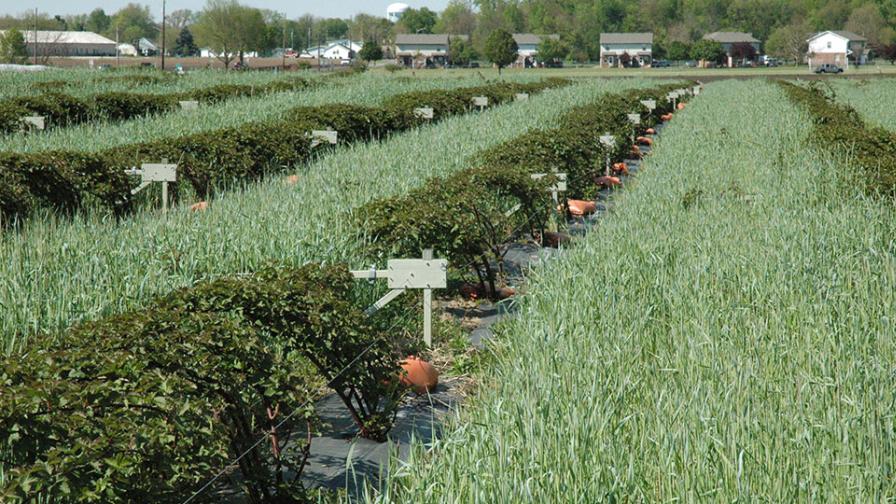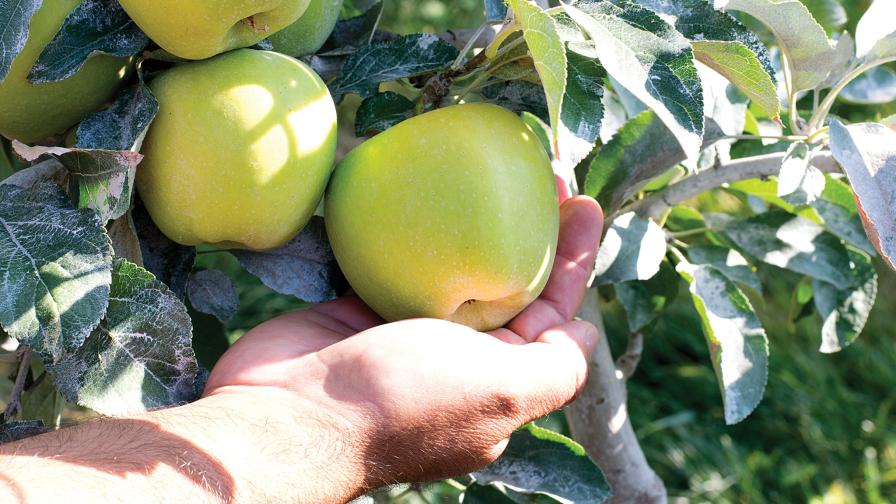The Quest for Better Fruit: Why Growers Need To Start From the Ground up
Soil health has been receiving increased attention from fruit growers worldwide. According to USDA-Natural Resources Conservation Service (NRCS), soil health is defined as the continued capacity of soil to function as a vital living ecosystem that sustains plants, animals, and humans.
Soil health is influenced by interacting biological, physical, and chemical properties of soil (DuPont et al., 2020). Active soil biological communities can help mineralize nitrogen in soil, improve soil structure, suppress plant pathogens, and ultimately increase fruit tree productivity by improving nutrient uptake and reducing environmental stress to fruit crops (DuPont et al., 2020).
Planting cover crops, mulching with organic materials, and applications of beneficial microbes are some of the ways to improve soil health.
PLANTING COVER CROPS
Cover crops have been shown to improve soil health by increasing soil biodiversity and organic matter content, maintaining chemical balances, maintaining C:N (carbon-to-nitrogen) stoichiometry and soil physical stability with moisture conservation and soil-erosion control (Islam et al., 2021).
“We planted cereal rye in our new blackberry field to provide a ground cover to suppress weeds, keep dust down, and mud off our workers,” says Brett Rhoads of Rhoads Farms and Garden Center in Circleville, OH. His farm crew members sowed cereal rye seeds shortly after Labor Day and rolled and crimped the rye plants the following spring.

Cereal rye provides a nice ground cover between the blackberry rows on Rotatable Cross Trellis in Circleville, OH.
Photo by Gary Gao, The Ohio State University
Fruit growers have been using cover crops as a part of the orchard or vineyard establishment for many years. Single species cover crop in succession is more typical than mixed species in one single seed sowing. Mixed species of cover crops can have an advantage due to more efficient sunlight-use efficiency and more diverse biological benefits according to Dr. Rafiq Islam, Program Director of Soil, Water, and Bioenergy Resources Program, The Ohio State University. Much more information can be found in Islam’s book, “Cover Crops and Sustainable Agriculture,” published by CRC Press in 2021.
Growers are also encouraged to work with their state Extension specialists for the optimum mix and types of cover crops in their respective states.
MULCHING WITH ORGANIC MATERIALS
Mulching has demonstrated efficacy to enhance soil health by reducing evaporation, increasing moisture retention, regulating temperature, enhancing nutrient availability and root absorption, suppressing weeds, decreasing salinity, encouraging biological activity, and controlling crop pests and diseases (Ngosong et al., 2019).
Blueberry growers have been using aged wood chips, saw dust, pine straws, and other organic materials as an organic mulch to keep soils and roots healthy. Plastic film or weed matt, though effective in controlling weeds and conserving soil moisture, may not be as good as organic mulch in keeping soil microbes active.
ADDING BENEFICIAL MICROBES
Growers have applied beneficial microbes to soils to improve soil health and curb plant diseases. The latest buzz words are microbiome and phytobiome.
According to an article by Bell et al., in 2021, “Soil microbes, biological communities, and the functions they perform are dynamic, complex, and not easily interpreted for field practices. Yet, they are getting more attention as farmers are encouraged to practice more holistic management approaches on their farms.”
Numerous commercial products are available for growers to purchase. For example, “TerraGrow Liquid (BioSafe Systems) is a specialty blend of beneficial microbial organisms formulated to bolster plant health. When applied to the soil, it quickly establishes beneficial microbes in the root zone and improves nutrient availability. When applied to foliage, TerraGrow Liquid enhances plant vigor and bolsters stress tolerance” according to a study report provided by Dr. Jodi Creasap Gee, Field Research and Development Project Manager and Technical Sales Representative, Agriculture Division, BioSafeSystems.
Increased efforts have been devoted to soil health improvement in modern agriculture. All these practices take time, money, and dedication. Dave Brandt, a farmer and cover crop seed grower in Ohio (aka “The Godfather of Soil Health”), was interviewed in a podcast available online by clicking here. Brandt says growers should not look at cover crops as only a cost. They should look at it more like an investment. All fruit growers certainly hope their investments in soil health will pay off in one way or another.










